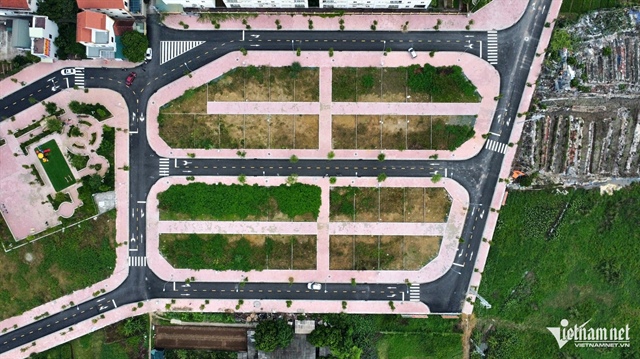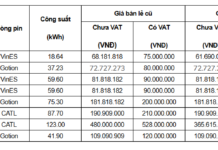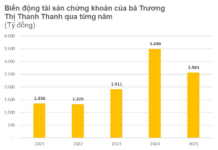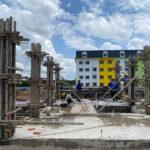A permit-granting officer in a commune of Hanoi shared that during the process of issuing private housing construction permits in the area, when implementing the model of two-level local government, there were still some difficulties and legal procedural problems that needed to be addressed and resolved.
Although a document has been sent to the Department of Planning and Architecture and the Department of Construction of Hanoi for guidance, there are still some unclear contents that need further consideration.
Specifically, in the commune, there are several technical infrastructure investment projects for land auction of land use rights, which have detailed planning of 1/500 or belong to the area with detailed planning of the commune center and rural residential areas. These projects only invest in infrastructure (transportation, land leveling, water supply and drainage, lighting…) but do not construct houses. After winning the auction, people will build houses according to the approved detailed planning, which includes full parameters such as floor height, building density, first-floor floor level, and land use coefficient.
According to the reply from the Department of Construction, although the commune already has a detailed plan of 1/500, private housing construction is not exempt from the construction permit. The condition for exemption is that the work must be within the construction investment project that has been evaluated by the competent agency for feasibility report, or in the area with approved urban design.
In other words, separate housing works in urban areas, projects with ready-made detailed designs are exempt from permits.
The officer wondered if the guidance from the Department was correct so that there would be a basis for guiding the people in the construction permit granting process.

A land auction site in Hanoi. Photo: Hong Khanh |
In response to the above issue, the Department of Economics – Management of Construction Investment (Ministry of Construction) said that according to the current legal regulations, for residential area projects with the goal of investing in infrastructure and transferring land to households and individuals for self-construction, there is a detailed plan of 1/500 that has been approved by the competent state agency. When people receive the land transfer and self-construct houses, they do not fall under the prescribed objects.
“People must obtain a construction permit before starting the construction of the work,” the Ministry of Construction said.
On that basis, the Ministry requested that citizens study and ensure compliance with the current legal regulations.
Previously, the Ministry of Construction also answered citizens in Phuc Loc commune (Hanoi) about whether they need a construction permit and whether they must have drawings when building a house under 3 floors in this area.
The Ministry of Construction quoted the regulations at Point i, Clause 2, Article 89 of the 2014 Construction Law, amended and supplemented according to Clause 30, Article 1 of Law No. 62/2020/QH14 amending and supplementing a number of articles of the Law on Construction, which took effect from January 1, 2021.
Accordingly, cases exempt from construction permits include: Grade IV construction works, separate houses in rural areas with a scale of less than 7 floors and outside urban planning areas, functional area planning or detailed planning of rural residential areas that have been approved.
In addition, there are Grade IV construction works, separate houses in mountainous and island areas that are not in urban planning areas, functional area planning; except for works and separate houses constructed in conservation areas, historical-cultural relic sites.
Hong Khanh
– 08:58 25/08/2025
“Fraudulent Business Director Scams Victims Out of Over $800,000 Through Deceptive Land Deals”
Amid allegations of fraud and embezzlement totaling VND 19 billion through the sale of discounted land, defendant Nguyen Van Thien (DOB: 1974, Director of Thien An Investment, Construction, and Services Co., Ltd.) has been sentenced to 13 years and 6 months in prison.
The Chairman’s Apology: Fast-tracking Hanoi’s Detailed Planning for Old Apartment Renovations
The Hanoi People’s Committee has instructed districts to submit detailed plans for the renovation of six residential areas: Thanh Cong, Ngoc Khanh, Giang Vo, Thanh Xuan Bac, Thanh Xuan Nam, and Nghia Tan. The deadline for submitting these plans is set for December 2024.












































